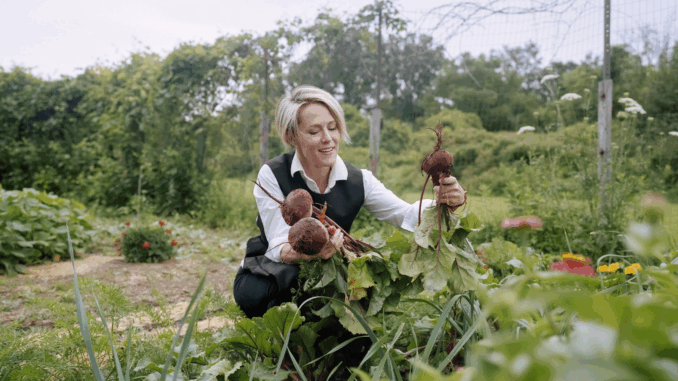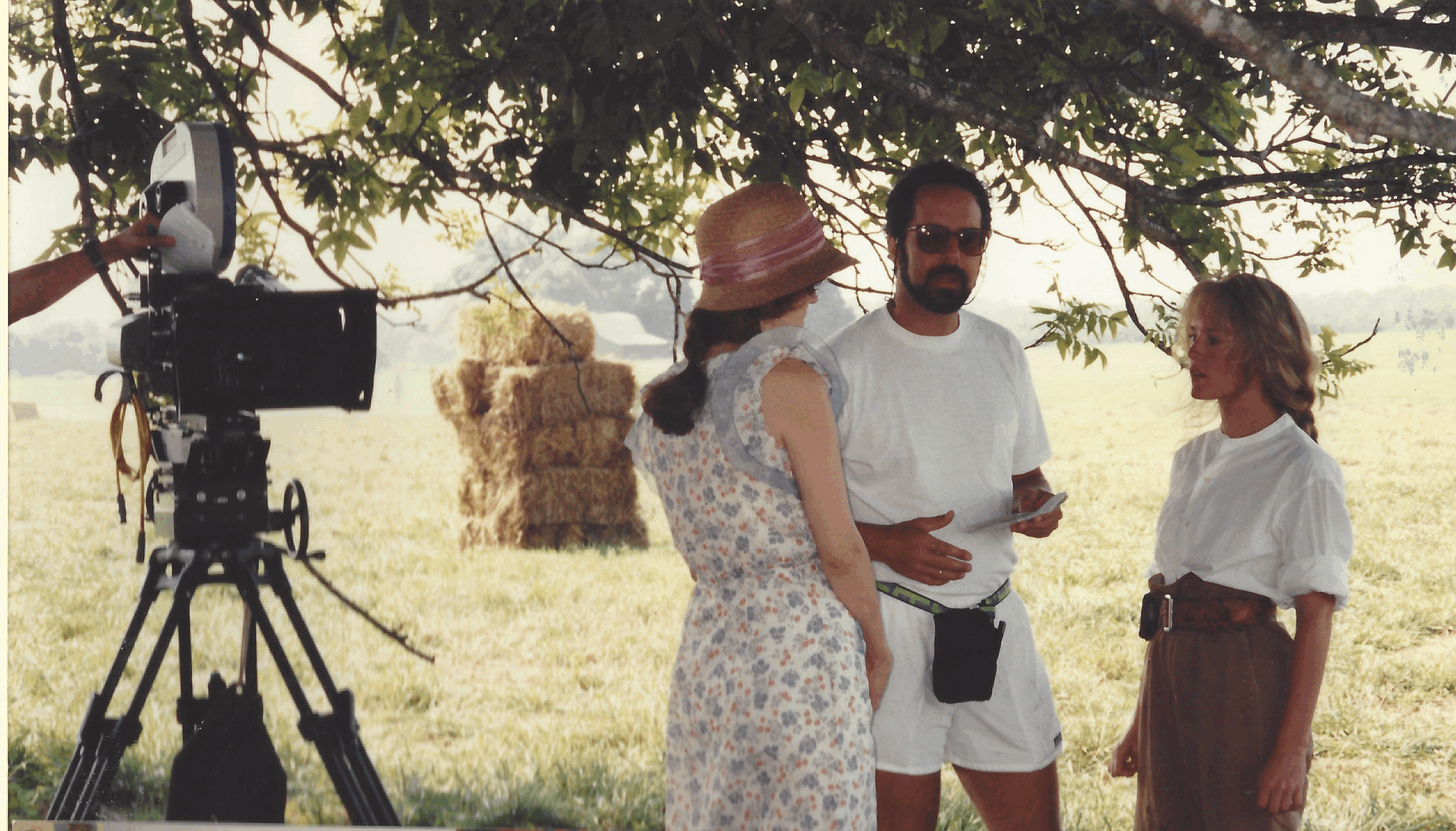
Born Into Hollywood
Mary Stuart Masterson was born on June 28, 1966, in Manhattan, New York City, into a creative and artistic household. Her father, Peter Masterson, was a writer, director, and actor, and her mother, Carlin Glynn, was a Tony Award-winning actress. Surrounded by performance and storytelling from a young age, Mary Stuart’s future in the arts seemed almost inevitable.
She made her first film appearance at age 8 in the 1975 movie The Stepford Wives, which her father co-wrote. But rather than pursuing acting immediately, she took a thoughtful approach, attending schools like the Dalton School and then studying anthropology and psychology at New York University before returning to her roots in performance.
Finding Her Path in Acting
Mary Stuart Masterson’s true breakout came in the 1980s, when she established herself as one of the most intelligent and emotionally attuned young actresses in Hollywood. She quickly gained a reputation for taking on roles that challenged expectations of femininity and highlighted the inner lives of complex women.
Her role in Some Kind of Wonderful (1987) as tomboy drummer Watts won her critical acclaim and a loyal fan base. Masterson brought layers to characters that could easily have been played one-dimensionally—giving them soul, sarcasm, vulnerability, and power. She wasn’t the conventional romantic lead; she was something far more compelling: authentic.
This grounded approach made her a perfect fit for the role that would define her career—Idgie Threadgoode in Fried Green Tomatoes.
Becoming Idgie: The Rebel With a Heart

In Fried Green Tomatoes (1991), Masterson played Idgie Threadgoode, a wild, fiercely independent Southern woman who lives by her own rules. Idgie resists all traditional roles—she refuses to be tamed by society, religion, or even grief. Her relationship with Ruth Jamison, played by Mary-Louise Parker, is the heart of the film.
Masterson’s Idgie is electric—quick-witted, protective, impulsive, and deeply loyal. There’s a vulnerability that peeks through her tough shell, especially in scenes with Ruth. Whether jumping from a train or defending Ruth against abusive men, Masterson delivers Idgie with unwavering conviction. Her performance isn’t just memorable—it’s iconic.
One of her greatest triumphs in the role is the balance she maintains between rebellion and tenderness. Idgie is not a caricature of a free spirit; she’s grounded in trauma, shaped by loss, and anchored by love. Masterson’s subtle, layered portrayal allows us to understand why people follow Idgie, why they trust her, and why Ruth eventually builds a life beside her.
Chemistry and Courage
The emotional bond between Idgie and Ruth carries strong romantic undertones, though the film—adapted from Fannie Flagg’s novel—stopped short of explicitly depicting a lesbian relationship. Still, Masterson and Parker’s chemistry speaks volumes, and their performances brought emotional weight and intimacy to every shared scene.
Masterson has spoken over the years about the delicate process of portraying a character like Idgie in a time when queer representation was often erased or muted. She approached Idgie’s love for Ruth with honesty and depth, focusing on the truth of the characters rather than limitations imposed by the industry or the era.
To this day, LGBTQ+ fans and film lovers continue to praise the tenderness and bravery in Masterson’s performance. Idgie became a rare beacon of queer-coded representation in mainstream cinema of the early ‘90s—a defiant, loving, whole character who broke boundaries by simply being herself.
Critical Acclaim and Cultural Legacy
Fried Green Tomatoes was a critical and commercial success, and much of its power rests on Masterson’s transformative performance. Though she didn’t receive an Oscar nomination, her portrayal of Idgie left a lasting impact.
Critics praised her “raw vitality” and “emotional intelligence.” Audiences connected with her rebellious energy and quiet grief. For many, Idgie Threadgoode became a symbol of resilience, authenticity, and nonconformity.
The film itself was groundbreaking in its gentle portrayal of female relationships, and Masterson’s Idgie stood at the center—a character who refused to live a life defined by others. She became an archetype of feminine strength outside traditional boundaries.
Life After Whistle Stop
After Fried Green Tomatoes, Masterson continued to work steadily in both film and television. She appeared in Benny & Joon (1993), Bed of Roses (1996), and The Book of Stars (1999), among others. Each role reflected her commitment to nuanced, human storytelling.
In the 2000s, she expanded her talents behind the camera, directing the 2007 independent film The Cake Eaters, which starred Kristen Stewart. The film, a quiet exploration of love and mortality, reflected Masterson’s gift for character-driven storytelling. It premiered at the Tribeca Film Festival and earned praise for its sensitive direction and performances.
She also became active in theater, following in the footsteps of her family. Her Broadway performances include Nine and The Crucible, where she once again proved her talent for emotionally rich, powerful roles.
Personal Life and Advocacy
In addition to her work in entertainment, Masterson has been involved in numerous social and political causes. She has advocated for mental health awareness, women’s rights, and support for independent artists. Her advocacy work reflects the same spirit of courage and care that defines her performances.
She is married to actor Jeremy Davidson, with whom she has children, and they reside in New York. Despite stepping back somewhat from mainstream Hollywood, she remains deeply respected in artistic circles for her integrity, talent, and devotion to storytelling.
The Enduring Power of Idgie
Over thirty years after the release of Fried Green Tomatoes, fans still return to Idgie Threadgoode—still quote her lines, still cry at her heartbreak, and still smile at her mischief. Masterson gave life to a character who could have been an outsider caricature, and instead made her a legend.
Idgie is part of the film’s soul, and Mary Stuart Masterson is the reason why. With fierce energy, emotional depth, and unwavering sincerity, she made Idgie unforgettable.
Her performance continues to inspire not only actors, but anyone who’s ever felt like they didn’t fit in. Through Idgie, Masterson told us: You don’t have to conform to be worthy of love. You just have to be brave enough to be yourself.
